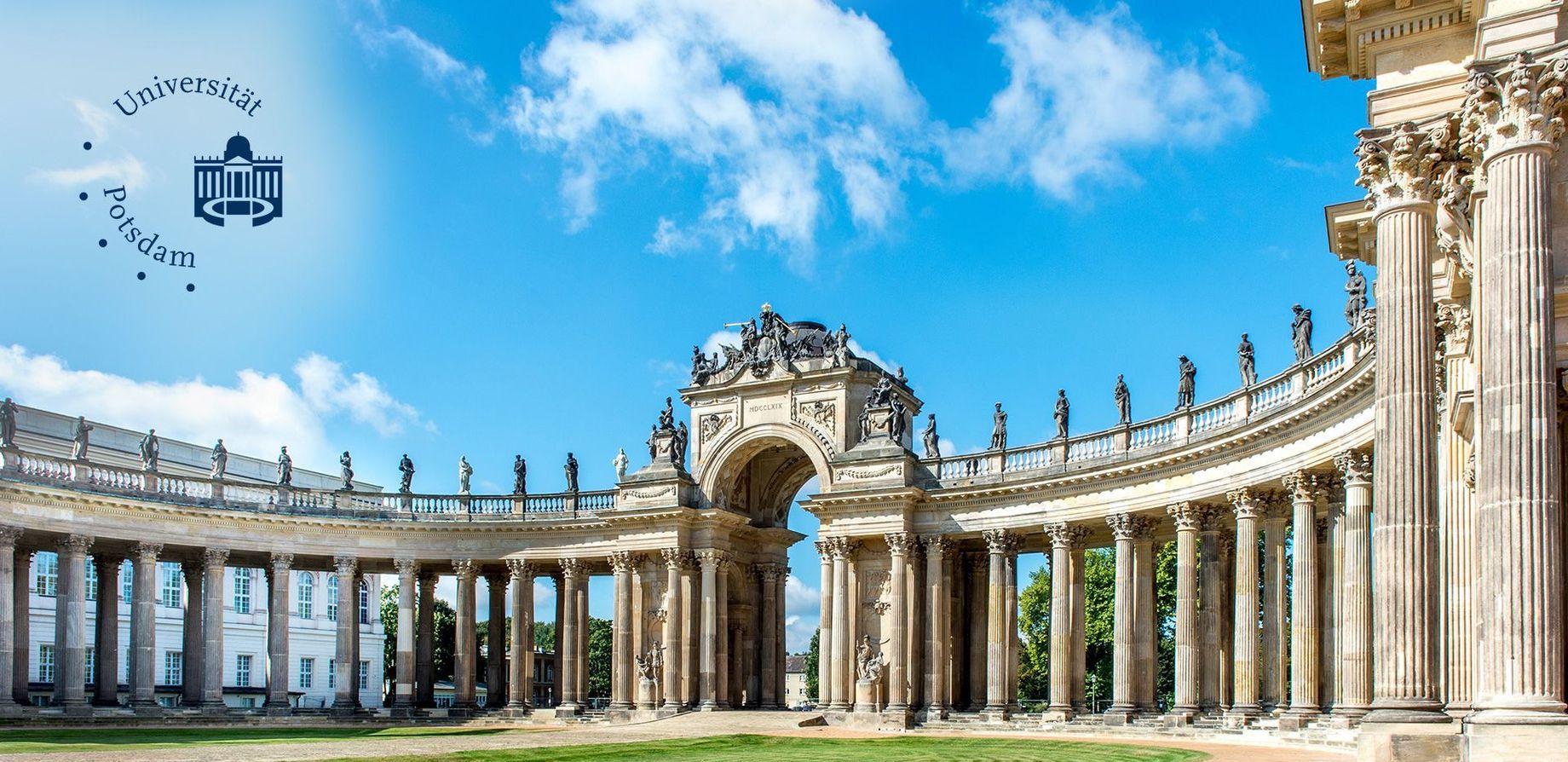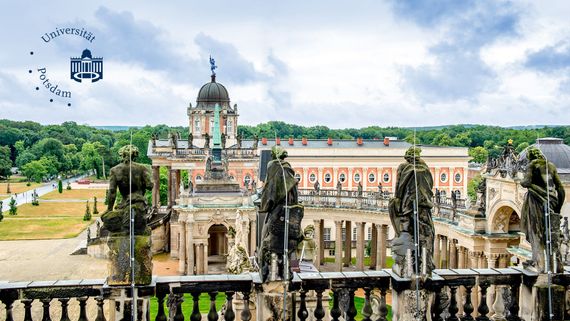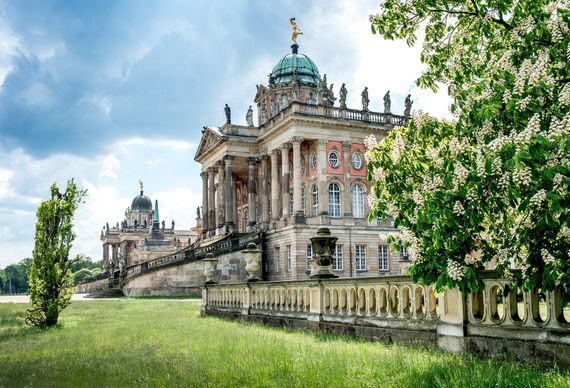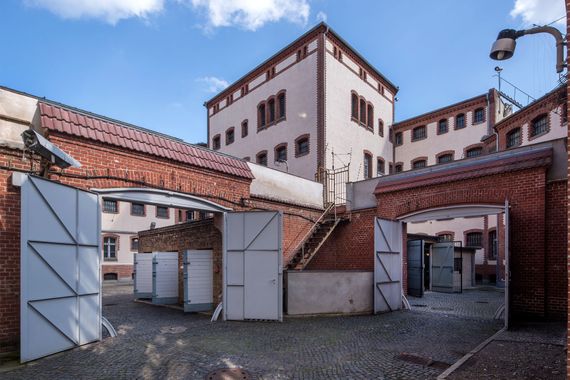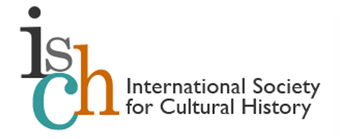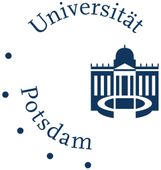The International Society for Cultural History (ISCH) organises annual conferences since 2008. The subject of this year’s 16th conference in Potsdam, Germany, is “Embodied Histories: Cultural History of, in, and through the Human Body”.
Human actions and interactions are mediated and expressed through the body. Even abstract thoughts and philosophical ideas are transmitted through moving and acting bodies (speaking and hearing; writing and reading). Beyond contacts and interactions among themselves, throughout history humans have also sought to establish contact and relationships with transcendental spheres and divinities through bodily movements and performances even while remaining firmly bound to the materiality of bodies and the material world generally. Embodied Histories refers to the cultural history of the human body – for example, what humans have thought and said about bodies, how they have moved, and what they have done to their own and others’ bodies – but also to telling cultural history through the human body, investigating how bodies and body conceptions have been impacted by political, social, economical, and cultural shifts. How do individual human bodies function within and in relation to social, civic, and political bodies? How do collective images and normative ideas of the body influence and shape individuals and their body practices? Embodied Histories is interested in investigating the cultural history of both whole bodies and body parts – as well as the bases and rationales for the subdivision and fragmentation of bodies.
For its 2024 conference, the International Society for Cultural History invites paper and panel proposals on the theme of “Embodied Histories.” Historians and contextually oriented scholars working on any period or location are encouraged to explore (but are by no means limited to) the following topics:
- representations and conceptualizations of the human body and its parts
- categorizations, marginalizations, and discriminations of the body; racialized bodies, gendered bodies
- histories of medicine and of therapy
- changing bodies from childhood to old age
- disability history
- politics of the body
- body norms, their negotiations, and their social and cultural repercussions
- cultural constructions of beautiful, healthy, and desirable bodies
- bodily performances and practices in different contexts
- commodification of the body and its parts
- bodies and body parts in religious contexts
- bodily functions, body fluids and gasses, and their cultural significance
- punishments and constraints of the body and its parts; bodily (self)control
- temporary and permanent body modifications and enhancements
- discourses and practices of the dead body
- bodies in movement, mobile bodies, bodies and political borders
- bodies in personal and social interaction
- bodies in conflict and war
- perceiving and perceived bodies
- bodily pleasures
- violence to and abuses of the body
- boundaries of the body, their transgressions, and their violations
- reconstructing history through the body: reenactments, experimental archaeology
- topographies of the human body and identification of its components
As always, we also welcome panel and paper proposals on methods and theories of cultural history; new approaches to cultural history; and the history of cultural history.
ISCH Prize Competition for Cultural Historians
In order to support cultural historical research and encourage scholars in their early career, the International Society for Cultural History (ISCH) has offered over the years a prize for the best unpublished article on cultural history. In 2023, the ISCH decided to turn the competition into a prize for the best ISCH conference presentation by an early career scholar in the annual ISCH conferences, to be held in Potsdam, Germany, in 2024.
The prize for 2024 is 350 €. The author of the winning paper will also be encouraged to rework it as an article and submit it to the society’s journal, Cultural History where its acceptation will be subject to normal peer review.
The ISCH welcomes original texts that make an insightful contribution to scholarship on cultural history through methodological innovation, theoretical originality or historiographical significance. Papers on any aspect of cultural history, on any historical period or geographical area will be accepted for consideration.
Submissions should be original, unpublished works in English, presented in person at the Potsdam conference, written by scholars who, when applying for the prize, are either preparing their PhD or have completed their PhD during the last five years. Text should be double spaced, and no more than 3000 words in length (excluding notes and bibliography).
If the candidate has presented a paper accompanied by slides, they should be included too.
To submit an entry, please send a complete application by email to
alessandro.arcangeli@univr.it
The submissions should include a cover sheet with author information, a short CV and the paper itself. All files should be in PDF format. Your submission must be sent not later than 22 September 2024. The winner will be announced by the end of the year.
Conference Venue
The conference venue for ISCH 2024 is the Campus Am Neuen Palais, one of the three campuses of the University of Potsdam. Located at the western fringe of the Sanssouci park, the campus is inserted in area of great historical interest and exceptional beauty – part of the UNESCO World Heritage Site “Palaces and Parks of Potsdam and Berlin”. House 9, in which some of the panels will take place, is part of the Communs, which hosted the kitchens, service rooms and guest rooms for the Neues Palais, which stands just in front of the University buildings.
You can reach the campus on foot through the park – a wonderful walk in early September, when the conference will take place! –, by bus or by train: the train station Potsdam Park Sanssouci is in walking distance (15 minutes) from the conference venue and provides direct train connections to central Berlin as well as to other cities in the region of Brandenburg.
You can join Campus Guide Greta for a virtual tour around the Campus Am Neuen Palais here.
Registration
Latecomers
(starting July 16, 2024)
Have you already paid your ISCH membership for 2024?
Yes, of course!
No, not yet!
Programme
You can download the detailed conference booklet with the entire programme and further detailed information here. Please note that we will provide you with updated versions from time to time.
Tuesday, September 3, 2024
16.00-18.00: Registration
Registration takes place in room 1.08.0.56
17.00: Postcolonial Potsdam Tour
Fee: 10€ to be paid to the tour guide
The tour will take place only if at least 10 participants will register.
Registration: Please send an e-mail to isch2024@uni-potsdam.de
---
Meeting point: Visitors Centre at the Neues Palais
Wednesday, September 4, 2024
8.30: Coffee and Registration
Registration takes place in room 01.08.0.56
9.00-10.45: Plenary Lecture
Montserrat Cabré i Pairet (Universidad de Cantabria), The ‘Women’s Question’: Gendered Experiences and Women’s Thinking on the Body in the Renaissance
Room 1.08.1.45 (Audimax)
11.00-13.00: Panel Session 1
14.30-16.30: Panel Session 2
16.45-18.30: Plenary Lecture
Christian Laes (University of Manchester), Disabilities and the Disabled in the Ancient World. A Social and Cultural History
Room 1.08.1.45 (Audimax)
19.00: Conference Dinner
More information to come soon
Thursday, September 5, 2024
8.30: Coffee and Registration
Registration takes place in room 01.08.0.56
9.00-11.00: Panel Session 3
11.15-13.15: Panel Session 4
14.30-16.15: Plenary Lecture
Änne Söll (Ruhr Universität Bochum), Bodies/Sex/Folklore: Graffiti as Intimate Ethnolgy in 1920s and 1930s Avantgarde Art
Room 1.08.1.45 (Audimax)
16.30-18.30: ISCH Annual General Meeting
19.00: Guided Tour of the Gedenkstätte Lindenstraße
Fee: voluntary entrance fee to be paid to the tour guide.
Participation is limited to
max. 20 visitors.
Registration: Please send an e-mail to isch2024@uni-potsdam.de
---
Meeting point: Gedenkstätte Lindenstraße
Friday, September 6, 2024
8.30: Coffee
9.00-11.00: Panel Session 5
11.15-13.15: Panel Session 6
14.30-16.15: Plenary Lecture
Christopher E. Forth (The University of Kansas), Revolts Against the Modern World: Masculinity, Modernity, and Far-Right Body Politics
Room 1.08.1.45 (Audimax)
Saturday, September 7, 2024
9.30: Potsdam Museum – Forum für Kunst und Geschichte
Fee: 5 € to be paid at the museum.
The tour will take place only if at least 8 participants will register.
Registration: Please send an e-mail to isch2024@uni-potsdam.de
---
Meeting point: Potsdam Museum – Forum für Kunst und Geschichte
Keynote Speakers
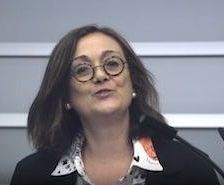
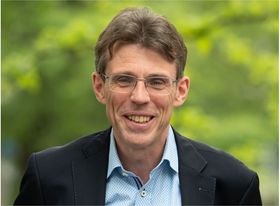
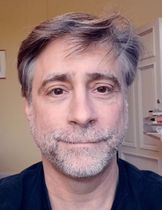
The ‘Women’s Question’: Gendered Experiences and Women’s Thinking on the Body in the Renaissance
Scholarship on the history of women's thinking often analyses the ideas of individual authors and the extent to which they threatened -or not- the impositions of regulatory gender regimes. By addressing the early stages of the history of women’s formal contributions to the ‘women’s question’, my presentation seeks to contrast their views on the significance of the female body in relation to women’s virtues and public appearance. I will analyse the divergent perspectives of Renaissance women who developed irreconcilable political discourses on the female body while sharing a strong commitment to defend women’s learning abilities and their civic contributions to society.
Wednesday, September 4, 2024
9.00–10.45, Room 1.08.1.45 (Audimax)
Disabilities and the Disabled in the Ancient World. A Social and Cultural History
Almost fifteen per cent of the world’s population today experiences some form of mental or physical disability and society tries to accommodate their needs. But what was the situation in the Roman world? Was there a concept of disability? How were the disabled treated? How did they manage in their daily lives? What answers did medical doctors, philosophers and patristic writers give for their problems? In this presentation, I first discuss the chances of survival for those who were born with a handicap. I then cover: mental problems, blindness, deafness and deaf-muteness, speech impairment and mobility impairment. For each disability, a famous ‘icon’ of the Graeco-Roman world will be highlighted.
Wednesday, September 4, 2024
16.45–18.30, Room 1.08.1.45 (Audimax)
Bodies/Sex/Folklore: Graffiti as Intimate Ethnolgy in 1920s and 1930s Avantgarde Art
Graffiti has been the focus of artistic and ethnological interest starting around 1900. Besides well-known artists such as Picasso, Grosz and Brassai who photographed and copied graffiti of Berlin and Parisian walls, the Austrian artist Rudolf Wacker (1893-1939) copied and collected sexually explicit graffiti he found in public urinals and bathrooms in Vienna and other Austrian towns. The lecture will analyze Wacker’s sexually explicit graffiti notebook in order to tease out the connections between artistic practices and interest in ethnological as well as sexological approaches to human sexuality—approaches inspired and sustained by non-European sculptures in the Berliner Völkerkunde Museum, and a budding sexual science
movement. How are bodies, sexual acts, and bodily fluids drawn, collected and arranged to show us Wacker’s vision of a sexual world free of moral judgement?
Thursday, September 5, 2024
14.30–16.15, Room 1.08.1.45 (Audimax)
Revolts Against the Modern World: Masculinity, Modernity, and Far-Right Body Politics
This presentation explores how the fascist writer Julius Evola’s 1934 call to ‘revolt against the modern world’ resonates in select countercultures of the Euro-American far right. By focusing on a range of bodily practices promoted by extremist groups, from countercultural musical scenes, exercise regimens, and fashion brands to neofascist ‘fight clubs’, I argue that far-right dreams of a regenerated white masculinity find their deeper sources in perennial male complaints about a materialist and secular modern world that is often derided as decadent, feminizing, and meaningless. To ‘revolt against the modern world’ may be thus considered an embodied countercultural project ushering in the kind of ‘anthropological revolution’ observed by historians of fascism like Emilio Gentile and Roger Griffin.
Friday, September 6, 2024
14.30–16.15, Room 1.08.1.45 (Audimax)
All keynote lectures will be streamed online:
https://uni-potsdam.zoom-x.de/j/64734735280
Meeting-ID: 647 3473 5280
Kenncode: 52620145
Please note: If you copy this link, it is sometimes possible for Zoom to place a blank space in front of the identifier. If an error message appears when you log in, please ensure you have not inserted an additional space.
Practical Information
Here you find important information for your travel to and your stay in Potsdam!
The closest airport is the Flughafen Berlin Brandenburg (BER), which is well connected to Potsdam by public transport (direct buses and trains).
If you arrive by train, you can find timetables and booking options via Germany’s national railway company Deutsche Bahn (DB). Please notice that Deutsche Bahn’s high-speed and long-distance trains “ICE” and “IC/EC”, have variable prices that make booking weeks, even months in advance more convenient.
Potsdam Park Sanssouci Bahnhof is the closest station in walking distance to the conference venue. However, the main station Potsdam Hauptbahnhof is better served by bus and is the only stop for most trains.
Local public transport (VBB) connects the conference venue with the city (buses and trams). Tickets can be purchased via a smartphone app or directly in buses and trams.
It is not possible to buy tickets for the Deutsche Bahn on the train!
The Homepage of Potsdam’s Tourist information offers helpful tips and information for your stay.
Standard sites provide lists of hotels and B&Bs. Please keep in mind that Potsdam is a major tourist destination in Germany. We advise you to book in advance. The Department has specific agreements providing discounts.
However, this discount can only be claimed for a booking for the entire duration of the conference: 03.–07.09. (four nights)!
Please note: That booking discount expires on 05.07.
Hotel Wyndham Garden
For further information please click here.
Booking options:
phone: +49 (0) 30 610819416
mail: reservation.berlin[at]gchhotelgroup.com
Booking code: UNI240903POT01
Hotel Mercure
Elisapart - Apartments am Sommerschloss
For further information please click here.
Booking options:
phone: +49 (0)331 / 769957-0
mail: info[at]elispart.net
Booking code: ISCH24
Social Events
Postcolonial Potsdam Tour
Tuesday, September 3, 2024, 17.00
General Information
Fee: 10€ to be paid to the tour guide
Duration: around 2 h
Participants: The tour will take place only if at least 10 participants will register.
Registration: Please register via mail: isch2024@uni-potsdam.de
---
Meeting point: Visitors Centre at the Neues Palais, Am Neuen Palais 10, 14469 Potsdam
Did you know that the Kilimanjaro was once Germany’s highest mountain and that the peak of the Kilimanjaro was brought to Potsdam? Did you know that the Prussian King Friedrich Wilhelm I. sold the colonial trading port and slave fortress Großfriedrichsburg to the Dutch for over 1,000 ducats and 12 enslaved Africans who were to serve at court in Potsdam? Did you know that China’s second largest beer brewery, Tsingtao beer, is a legacy of German colonialism? From the New Palace through the park Sanssouci, our tour points to traces of what the Prussian Kings and Emperors considered as signs of grandeur and savoir-vivre. We show how these are closely connected to the exploitation and appropriation of foreign territories, to Black people's history in Europe, and to anticolonial emancipation movements. Because this part of German history remains largely unknown, we provide a historical context to the Potsdam landscape, its castles, gardens and statues and connect it to present debates such as street renaming or restitution.
The tour starts at the New Palace and ends by the obelisk (close to the city center). Depending on participants’ walking speed and questions, the tour takes 2 to 2,5 hours.
The tour is wheelchair friendly. We can accomodate people with sight impairement if needed. Unfortunately, the tour is not suited to people with hearing impairment.
For more information on Postcolonial Potsdam Tours click
here.
Conference Dinner
Wednesday, September 4, 2024, 19.00
General Information
Fee: 40€
Duration: around 3 h
Participants: Participation is limited to max. 120 visitors.
Registration: Please register and pay by clicking on the button below!
---
Meeting point: Obere Mensa, Universität Potsdam, Campus Am Neuen Palais, Haus 12.
The conference dinner will take place at the Obere Mensa at the University of Potsdam and will entirely consist of vegetarian and vegan food.
Included in the price are an appetiser, main course, dessert as well as water, vine and various juices.
Sorry, the registration for the conference dinner is now closed.
Guided Tour of the Gedenkstätte Lindenstraße
Thursday, September 5, 2024, 19.00
General Information
Fee: Voluntary entrance fee to be paid to the tour guide
Duration: around 1.5 h
Participants: Participation is limited to max. 20 visitors.
Registration: Please register via mail: isch2024@uni-potsdam.de
---
Meeting point: Gedenkstätte Lindenstraße, Lindenstraße 54, 14467 Potsdam
Located in the city centre of Potsdam, the Lindenstrasse Memorial Site bears witness to the history of political persecution and violence under the different dictatorships in 20th century Germany. During the National Socialist dictatorship of 1933-1945, the building served as a prison for politically and racially persecuted people. From 1934, it was also the seat of a so-called hereditary health court, enforcing the sterilization of more than 3,300 people because of “hereditary feeblemindedness” or a variety of other perceived disabilities, as well as mental or neurological illnesses. For those classified as “hereditarily diseased”, this judgement did not generally signal the end of persecution by the National Socialist authorities. After sterilisation, many fell victim to the Nazi “euthanasia” programme – the systematic murder of the sick in sanatoriums and convalescent homes. After the Second World War, the Soviet secret police NKVD (later MGB) used the site as a central prison in the state of Brandenburg and as a venue for Soviet military tribunals, targeting both suspected war criminals and former Nazis, as well as political opponents of the Soviet authorities and its efforts to establish a Stalinist government in East Germany. From 1952, the regional remand prison of the Ministry of State Security of the GDR was located at this site. Until 1989, people were imprisoned here for acts of political opposition against the East German dictatorship or for attempts to flee the country. As a result of the Peaceful Revolution in 1989/90, the prison became a place of democracy and later a memorial.
Unfortunately, the memorial is only partially accessible for wheelchair users. To respond to your needs as well as possible, participants are asked to provide information on their mobility with the registration
For more information on the Gedenkstätte Lindenstraße click
here.
Potsdam Museum – Forum für Kunst und Geschichte
Saturday, September 7, 2024, 9.30
General Information
Fee: 5€ entrance fee to be paid at the museum
Duration: 1 h
Participants: The tour will take place only if at least 8 participants will register.
Registration: Please register via mail: isch2024@uni-potsdam.de
---
Meeting point: Potsdam Museum – Forum für Kunst und Kultur, Am Alten Markt 9, 14467 Potsdam
Guided tour: Potsdam – the City’s History
The entertaining guided tour through the permanent exhibition of the Potsdam Museum offers an overview of over 1,000 years of Potsdam's history: from the first settlements to 1990 – historical highlights, important personalities, anecdotes and curiosities...
The city history exhibition at the Potsdam Museum
POTSDAM. A City Makes History
Over 500 original artifacts, pictures, short texts, audios and film clips illustrate Potsdam's development from the Middle Ages to the present: historical highlights and lineages, well-known personalities, anecdotes and curiosities.
Where and when did the city come into being? What did Frederick II have his guards at the city gates tell him? How did the Old Market Square develop in the 18th century? How did Casanova or Alexander von Humboldt experience Potsdam? The Dutch, Swiss, Russians – who came when and why? Why does the imported mulberry tree still grow here today?
When was Potsdam considered a flourishing manufacturing city and what was produced? Why did Hindenburg and Hitler open the Reichstag in March 1933 in Potsdam of all places? Where were Soviet army bases located? How did the fall of the wall in 1989 play out in the city?
The city's history is told thematically in an accessible and memorable way: Luxury and splendour, immigration and the military, kings and the bourgeoisie, religion, urban development and architecture, art, crafts and scientific achievements.
For more information on the Potsdam Museum click
here.

